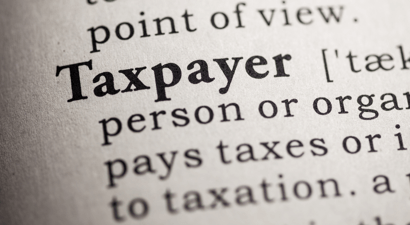Income Tax: Remuneration Derived by a Person as an Officer or Crew Member of a Ship
Taken from Interpretation Note 34 issued by SARS on 2 February 2017
This Note provides guidance on the circumstances under which section 10(1)(o)(iA) exempts the remuneration, derived by a person as an officer or crew member of a South African ship, from normal tax.
Section 10(1)(o)(iA) analysis
Remuneration
Section 10(1)(o)(iA) exempts from normal tax any form of remuneration that is derived by a person as an officer or crew member of a South African ship. The remuneration that qualifies for exemption is wide, being any “remuneration” as defined in paragraph 1 of the Fourth Schedule.
For the exemption to apply, there must be a causal connection between the remuneration received and the person’s role as an officer or crew member on the ship. Any remuneration derived outside the Republic other than as an officer or crew member of a ship, does not qualify for exemption under this provision.
The remuneration that is covered by the exemption relates to remuneration derived by a person during a year of assessment.
Any person as an officer or crew member
The exemption under section 10(1)(o)(iA) applies to “any person” but practically can only mean an individual who is a South African resident. Remuneration received by or accruing to a person other than a resident (non-resident) for services rendered outside the Republic is not from a South African source and therefore not subject to normal tax in South Africa.
The person must be an officer or crew member aboard a ship. Income earned by passengers or business persons (for example, owners of concessionary shops or restaurants on a cruise ship) whilst aboard the ship will not qualify for the exemption under section 10(1)(o)(iA).
Independent contractors do not earn “remuneration” as defined in the Fourth Schedule and do not qualify for the exemption. A person must therefore be an employee to qualify. A person cannot be an officer or crew member aboard a ship without also being an employee.
Qualifying ships
South African ship mainly engaged in international shipping
The exemption applies if the ship is a South African ship and is mainly engaged in “international shipping” as defined in section 12Q(1).
Section 12Q(1) defines “international shipping” as “the conveyance for compensation of passengers or goods by means of the operation of a South African ship mainly engaged in international traffic.”
The words “international traffic” are not defined in the Act. They must therefore be given their ordinary meaning, considering the context in which they are found, the ordinary rules of grammar and syntax, and their ostensible purpose.
“International traffic” is the movement of a ship between the Republic and a foreign nation, or between two foreign nations, or between ports in a foreign nation.
Passenger ships that do not transport passengers from one port to another, such as cruise ships, do not qualify as operating in “international traffic” if they set sail from and return to a port in the Republic, even if part of the cruise may take place outside of South African waters.
The word “mainly” means a quantitative measure of more than 50%. This indicates that the time ratio that the ship must be engaged in international traffic, when compared to domestic conveyance, must be more than 50% of the year of assessment. South African ship must be actively involved in the conveyance of passengers or goods.
The transportation of passengers or goods must be for compensation otherwise the exemption will not apply. This means the ship should be a South African merchant ship, such as a cruise ship, passenger liner or cargo ship, which travels outside the Republic. The mere domestic use of a South African ship designed for international voyages will not qualify as international shipping.
The requirement that the South African ship must be mainly engaged in the business of transportation means that, for example, the transportation of fish from a fishing ground to the port by a trawler will not constitute transportation “for compensation” because the trawler is in the business of fishing and not transportation. The provisions of subparagraph (bb) may, however, apply.
Officers or crew members employed on a ship, other than a South African ship that is engaged in the international transportation of passengers or goods for reward may still qualify for exemption of their earnings under section 10(1)(o)(i)(aa), provided the relevant requirements under that section are met.
South African ships mainly engaged in fishing
The exemption applies if the South African ship is mainly engaged in fishing outside the Republic. The exemption applies to any officer or crew member on the ship, and is not dependent on the activities conducted by the individual, but on the activity of the ship, being mainly fishing outside the Republic.
The word “mainly” has the same meaning as that for South African ship mainly engaged in international shipping (as discussed above), being a quantitative measure of more than 50%, and in the context of this part of the exemption must also be measured in time – that is, the ship must be engaged in fishing outside the Republic for more than 50% of its time.
Outside the Republic
To qualify for the exemption, the officer or crew member must be “outside the Republic”. The term “Republic” is defined in section 1(1). The definition encompasses the landmass of South Africa as well as its territorial waters, which is a belt of sea adjacent to the landmass but not exceeding 12 nautical miles (roughly 22,2 km) beyond the baselines of the country.
In certain circumstances, the Republic may extend beyond the geographical limits of its landmass and territorial waters. The definition of “Republic” specifically includes those areas beyond the territorial sea which have been designated under international or domestic law as areas where South Africa may exercise sovereign rights in respect of the exploration or exploitation of natural resources. This definition is aligned with domestic law and international law, which provide for South Africa’s right to explore and exploit natural resources in the exclusive economic zone (EEZ) and on the continental shelf.
The EEZ extends to 200 nautical miles (roughly 370,6 km) from the baselines. The continental shelf extends to the outer edge of the continental margin, or 200 nautical miles from the baselines, whichever is the greater.
The effect of the extended meaning of “Republic”, as set out above, is that the term “outside the Republic” has differing application under items (aa) and (bb) of section 10(1)(o)(iA).
Item (aa)
Under item (aa), an officer or crew member aboard a South African ship mainly engaged in international shipping (that is transporting goods or passengers for reward), will be outside the Republic if that person is outside the territorial waters of South Africa. The extended definition of the “Republic” does not apply, because the ship is not involved in the exploration or exploitation of natural resources.
Item (bb)
Fishing constitutes the exploitation of South Africa’s living natural resources, and therefore an extended definition of the Republic will apply. For purposes of item (bb), resident officers or crew members aboard a South African ship mainly engaged in fishing are regarded as being outside the Republic when the ship is either beyond the EEZ or beyond the edge of the continental shelf of South Africa depending on the type of fishing that is done.
For fishing of “living organisms belonging to sedentary species” the Republic will extend up to the edge of the continental shelf of South Africa. For all other types of fishing, the Republic does not extend beyond the EEZ.
Officers or crew members not employed for the exploitation of natural resources may still qualify for the exemption of their earnings under section 10(1)(o)(ii), provided the requirements of that section are met.
Days test and apportionment
There is no “days test” requirement under section 10(1)(o)(iA), whereby exemption will only be granted if the officer or crew member spends a certain amount of time outside the Republic. The test is simply whether the ship is mainly engaged in the activity outside of the Republic, and the employee derives remuneration form services rendered aboard that ship. If that is the case, all such remuneration derived by that employee will be exempt under section 10(1)(o)(iA), irrespective of how many days the employee was outside the Republic. No apportionment will therefore be necessary – even if a portion of the services are rendered in the Republic.
Employees’ tax, UIF and SDL
The potential for an exemption under section 10(1)(o)(iA) does not automatically waive the obligation of an employer to deduct or withhold employees’ tax under the Fourth Schedule. An employer that is satisfied that the provisions of section 10(1)(o)(iA) will apply in a particular case may, however, elect not to deduct or withhold employees’ tax. In the case where the employee does not qualify for exemption and the employer has elected not to deduct or withhold employees’ tax, the employer will be held liable for the employees’ tax not deducted as well as the concomitant penalties and interest.
Each remuneration item qualifying for the section 10(1)(o)(iA) exemption must be disclosed under the relevant foreign service income source code on the employees’ tax certificate (IRP5). Foreign salary income must, for example, be disclosed under code 3651, bonus payments under code 3655 and medical aid contributions under code 3860. Code 3652 may not be used for any remuneration item that may qualify for exemption under section 10(1)(o)(iA).
An employer that has deducted or withheld employees’ tax may not refund the employees’ tax to an employee where it subsequently transpires that the remuneration qualifies for exemption under section 10(1)(o)(iA). The employee must claim the exemption on assessment. Supporting documentation in the form of, for example, a passport, an employment contract and confirmation of the ship’s location, may be requested to substantiate the exemption claimed on assessment.
Any amount that is exempt under section 10(1)(o)(iA) no longer constitutes “remuneration” as defined in paragraph 1 of the Fourth Schedule. These amounts are not subject to the deduction of UIF or SDL. Any remuneration that remains taxable in South Africa will still be subject to the payment or withholding of levies or contributions under these statutes.
The exemption under section 10(1)(o)(iA) only applies to remuneration which is received by or a accrues to a South African resident employee during the year of assessment for services rendered on a South African ship.





